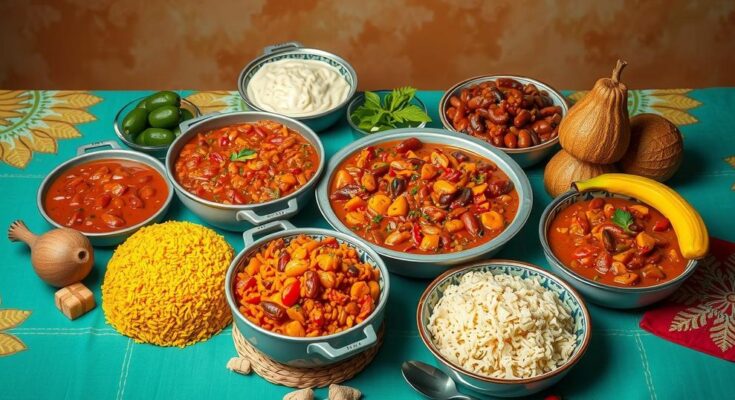This article outlines food items prohibited for import from Nigeria to the UK due to health and safety regulations. It highlights six categories including meat, dairy, unprocessed shellfish, ungutted fish, fresh produce, and raw nuts, emphasizing the importance of compliance to avoid customs issues.
Traveling from Nigeria to the United Kingdom entails adherence to strict food import regulations that aim to protect public health, safeguard local agriculture, and prevent the dissemination of pests and diseases. Travelers must be aware of prohibited food items to avoid confiscation, fines, or delays at customs. Regulations can evolve, therefore it is advisable to consult the latest UK import guidelines as well as airline policies before embarking on your journey.
The following are six Nigerian foods that are prohibited from entering the UK along with the accompanying rationale:
1. Meat and Meat Products: All forms of meat, whether raw, cooked, dried, or processed, are strictly banned. This includes beef, chicken, goat meat, and meat-based dishes. The prohibition is in place to mitigate the risk of animal disease outbreaks, such as foot and mouth disease.
2. Milk and Dairy Products: Dairy items, including milk, cheese, butter, and yogurt, are not permitted. The sole exception is for unopened, branded powdered infant milk or special medical food that does not require refrigeration. These measures are intended to prevent the introduction of harmful bacteria and diseases.
3. Unprocessed Shellfish and Snails: Travelers are not allowed to bring in raw mussels, oysters, or live snails. If snails are transported, they must be cooked, shelled, and preserved. These restrictions promote food safety and prevent the introduction of invasive species.
4. Ungutted Fresh Fish: While individuals may carry up to 20kg of fish, it must be gutted prior to travel. Processed fish that is commercially packaged, such as dried or smoked fish, is permissible. However, whole, unprocessed fish are not allowed.
5. Fresh Fruits and Vegetables: The importation of most fresh fruits and vegetables is prohibited unless accompanied by a phytosanitary certificate verifying that they are free from pests and diseases. This includes popular items such as watermelon and berries. Leafy vegetables also require proper certification.
6. Raw Nuts and Seeds: Most unpackaged, unpeeled, and unprocessed nuts and seeds are restricted unless they possess a phytosanitary certificate. This ban encompasses items such as raw groundnuts and melon seeds, which can harbor pests or diseases.
Staying informed about these regulations allows travelers to navigate customs without unwanted complications.
In conclusion, travelers from Nigeria to the UK must exercise caution regarding food items prohibited at the border. Awareness of the restrictions on meat, dairy, unprocessed shellfish, ungutted fish, fresh produce, and raw nuts is crucial to ensure compliance with UK import regulations. Consulting the latest guidelines prior to travel is recommended to avoid any inconveniences during customs processing.
Original Source: businessday.ng




